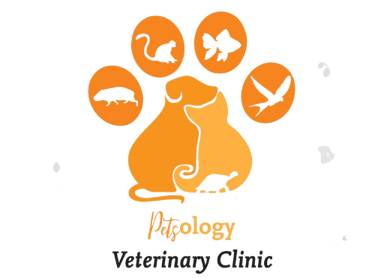Pet Care: Recognizing and Caring for Signs of Pet Illness
Choosing the Best Pet Food: Age, Lifestyle, and Health Considerations


Table of Contents
Introduction to Pet Nutrition
The Importance of Pet Nutrition
Age and Pet Nutrition
Nutritional Needs of Pets
Choosing the Right Pet Food
Understanding Pet Food Labels
Decoding Pet Food Ingredients
Quality Pet Food Brands
Veterinarian Recommendations for Pet Food
Feeding Young Pets
Nutrition for Puppies
Feeding Kittens
Senior Dog Food
Age-related Health Concerns in Senior Dogs
Nutritional Requirements for Senior Dogs
Choosing the Right Senior Dog Food
Nutrition for Active Pets
Energy Requirements for Active Dogs
Feeding Active Cats
Nutritional Supplements for Active Pets
Pet Food Allergies
Identifying and Managing Pet Food Allergies
Common Allergens in Pet Food
Alternative Diets for Allergy-prone Pets
Pet Food for Digestive Issues
Common Digestive Issues in Pets
Dietary Modifications for Digestive Health
Veterinarian Recommendations for Pet Health
Regular Wellness Exams
Optimal Nutrition for Pet Health
Additional Pet Health Tips
Conclusion
The Key to a Healthy Pet: Proper Nutrition
Taking the Next Steps in Pet Care
1. Introduction to Pet Nutrition
The Importance of Pet Nutrition
Proper nutrition is the foundation of good health for our furry companions. Just like humans, pets require a balanced diet to thrive and maintain optimal health. A well-balanced diet provides the necessary nutrients, vitamins, and minerals to support their growth, immune system, and overall well-being. By ensuring that our pets receive the right nutrition, we can help prevent nutritional deficiencies, obesity, and various health conditions.
Age and Pet Nutrition
As pets age, their nutritional needs change. Puppies and kittens require specific nutrients to support their rapid growth and development, while senior pets may have decreased energy requirements and specific dietary considerations. It is essential to select age-appropriate pet food to meet the unique needs of each life stage.
Nutritional Needs of Pets
The nutritional needs of pets vary depending on their species, breed, size, activity level, and overall health. However, some basic nutritional requirements apply to all pets. These include a balance of proteins, carbohydrates, fats, vitamins, and minerals. Proteins are crucial for muscle development and repair, while carbohydrates provide energy. Fats are a concentrated source of energy and support various bodily functions. Vitamins and minerals play essential roles in metabolism, immune function, and overall health.
2. Choosing the Right Pet Food
Understanding Pet Food Labels
When selecting pet food, it is important to understand how to read and interpret pet food labels. The information provided on the label can give you valuable insights into the quality and nutritional value of the product. Look for labels that provide clear ingredient lists, guaranteed analysis of nutrient content, and information about the manufacturer's quality control processes.
Decoding Pet Food Ingredients
The ingredients in pet food play a significant role in determining its nutritional value. Look for whole, high-quality protein sources as the primary ingredient, such as chicken, beef, or fish. Avoid foods that contain excessive fillers, artificial additives, or by-products. It is also essential to consider any specific dietary restrictions or allergies your pet may have when choosing pet food.
Quality Pet Food Brands
Not all pet food brands are created equal. Some brands prioritize quality and nutrition, while others may focus more on marketing and cost-cutting. It is crucial to choose pet food brands that have a reputation for using high-quality ingredients and conducting rigorous testing to ensure the safety and nutritional value of their products. Consult with your veterinarian for recommendations on reliable pet food brands.
Veterinarian Recommendations for Pet Food
Veterinarians are invaluable resources when it comes to selecting the right pet food for your furry friend. They have in-depth knowledge of pet nutrition and can provide personalized recommendations based on your pet's specific needs and health conditions. Regular wellness exams allow veterinarians to monitor your pet's overall health and make necessary adjustments to their diet if needed.
3. Feeding Young Pets
Nutrition for Puppies
Puppies have unique nutritional requirements due to their rapid growth and development. They require a diet rich in high-quality proteins, fats, and essential nutrients to support their growing bodies. Look for specially formulated puppy food that meets the Association of American Feed Control Officials (AAFCO) standards for complete and balanced nutrition for puppies.
Feeding Kittens
Similar to puppies, kittens require specific nutrients for their growth and development. A diet rich in high-quality proteins, fats, and essential nutrients is essential for their overall health. Choose kitten food that is specifically formulated to meet their nutritional needs. Gradually transition them to adult cat food as they reach adulthood.
4. Senior Dog Food
Age-related Health Concerns in Senior Dogs
As dogs age, they may experience various age-related health concerns, such as joint stiffness, decreased mobility, dental issues, and reduced metabolism. These factors can affect their nutritional needs. Senior dog food is specially formulated to address these concerns and support their overall health and well-being.
Nutritional Requirements for Senior Dogs
Senior dogs may have lower energy requirements and may benefit from a diet that is lower in calories and fat. However, they still require adequate protein, vitamins, and minerals to support their aging bodies. Look for senior dog food that contains joint-supporting ingredients, such as glucosamine and chondroitin, to promote mobility and reduce the risk of age-related joint issues.
Choosing the Right Senior Dog Food
When choosing senior dog food, consider your dog's individual needs and any specific health conditions they may have. Consult with your veterinarian to determine the appropriate nutritional requirements for your senior dog. Your veterinarian may recommend a specific senior dog food brand that meets these requirements.
5. Nutrition for Active Pets
Energy Requirements for Active Dogs
Active dogs, such as working dogs or dogs involved in sports and agility, have higher energy requirements than sedentary dogs. They require a diet that provides sufficient calories to fuel their physical activities. Look for high-quality dog food that is specifically formulated for active dogs, providing a balance of proteins, fats, and carbohydrates to support their energy needs.
Feeding Active Cats
Cats that lead an active lifestyle, such as outdoor cats or cats that engage in regular play, also have higher energy requirements. Choose cat food that is designed for active cats and provides the necessary nutrients and calories to support their energy levels. Consider feeding smaller, more frequent meals to ensure they receive adequate nutrition throughout the day.
Nutritional Supplements for Active Pets
In addition to a balanced diet, active pets may benefit from nutritional supplements to support their overall health and performance. Omega-3 fatty acids, glucosamine, and antioxidants are commonly used supplements for joint health, muscle recovery, and immune support. Consult with your veterinarian to determine if your active pet would benefit from any specific supplements.
6. Pet Food Allergies
Identifying and Managing Pet Food Allergies
Pet food allergies can cause a range of symptoms, including itching, skin rashes, gastrointestinal upset, and respiratory issues. Identifying the specific allergen can be challenging, as pets can be allergic to various ingredients. If you suspect your pet has a food allergy, your veterinarian may recommend an elimination diet or allergy testing to determine the allergen and develop a suitable dietary plan.
Common Allergens in Pet Food
Some common allergens in pet food include beef, chicken, dairy, wheat, soy, and corn. Grain-free diets have gained popularity as an alternative for pets with food allergies, although recent research suggests that grain allergies are relatively rare in pets. It is important to work closely with your veterinarian to determine the specific allergens affecting your pet and select an appropriate diet.
Alternative Diets for Allergy-prone Pets
For pets with severe food allergies or multiple food sensitivities, an elimination diet or a prescription hypoallergenic diet may be necessary. These diets are specially formulated to minimize the risk of triggering an allergic reaction. They typically contain novel protein sources and limited ingredients to reduce the likelihood of allergen exposure.
7. Pet Food for Digestive Issues
Common Digestive Issues in Pets
Digestive issues in pets can manifest as vomiting, diarrhea, flatulence, or constipation. These issues can be caused by various factors, including food intolerances, dietary indiscretion, gastrointestinal infections, or underlying health conditions. Identifying the cause of digestive issues is essential to develop an appropriate dietary plan.
Dietary Modifications for Digestive Health
In cases of digestive issues, dietary modifications can play a crucial role in managing symptoms and improving gastrointestinal health. Your veterinarian may recommend a bland diet, a limited ingredient diet, or a prescription gastrointestinal diet to alleviate digestive issues. These diets are formulated to be easily digestible and gentle on the stomach.
8. Veterinarian Recommendations for Pet Health
Regular Wellness Exams
Regular wellness exams are vital for maintaining your pet's overall health and well-being. During these exams, your veterinarian will assess your pet's nutrition, perform a thorough physical examination, and address any concerns or questions you may have. Wellness exams allow veterinarians to detect early signs of illness and provide appropriate recommendations for your pet's nutritional needs.
Optimal Nutrition for Pet Health
Veterinarians play a crucial role in providing guidance on optimal nutrition for pets. They can assess your pet's specific needs, recommend suitable pet food brands, and advise on portion sizes and feeding schedules. Veterinarians stay up-to-date with the latest research and advancements in pet nutrition, ensuring that your pet receives the best possible care.
Additional Pet Health Tips
In addition to proper nutrition, veterinarians can provide valuable advice on other aspects of pet health, such as exercise, dental care, parasite prevention, and behavioral enrichment. Regular communication with your veterinarian and adherence to their recommendations will contribute to your pet's overall health and well-being.
9. Conclusion
The Key to a Healthy Pet: Proper Nutrition
Choosing the right pet food is essential for ensuring the health and well-being of your furry friend. By understanding the nutritional needs of your pet, reading and interpreting pet food labels, and consulting with your veterinarian, you can make informed decisions about their diet. Whether you have a puppy, a senior dog, an active cat, or a pet with specific dietary requirements, there is a pet food option available to meet their unique needs.
Taking the Next Steps in Pet Care
Remember, proper nutrition is just one aspect of caring for your pet's health. Regular veterinary check-ups, exercise, mental stimulation, and a loving environment all contribute to their overall well-being. By providing your pet with the right nutrition and comprehensive care, you can ensure they lead a happy and healthy life by your side.
Additional Information: Pet care, Signs of pet illness, Recognizing pet illness, Pet health, Caring for your pet, Identifying pet illness, Pet wellness, Pet health tips, Spotting pet illness, Pet health awareness


